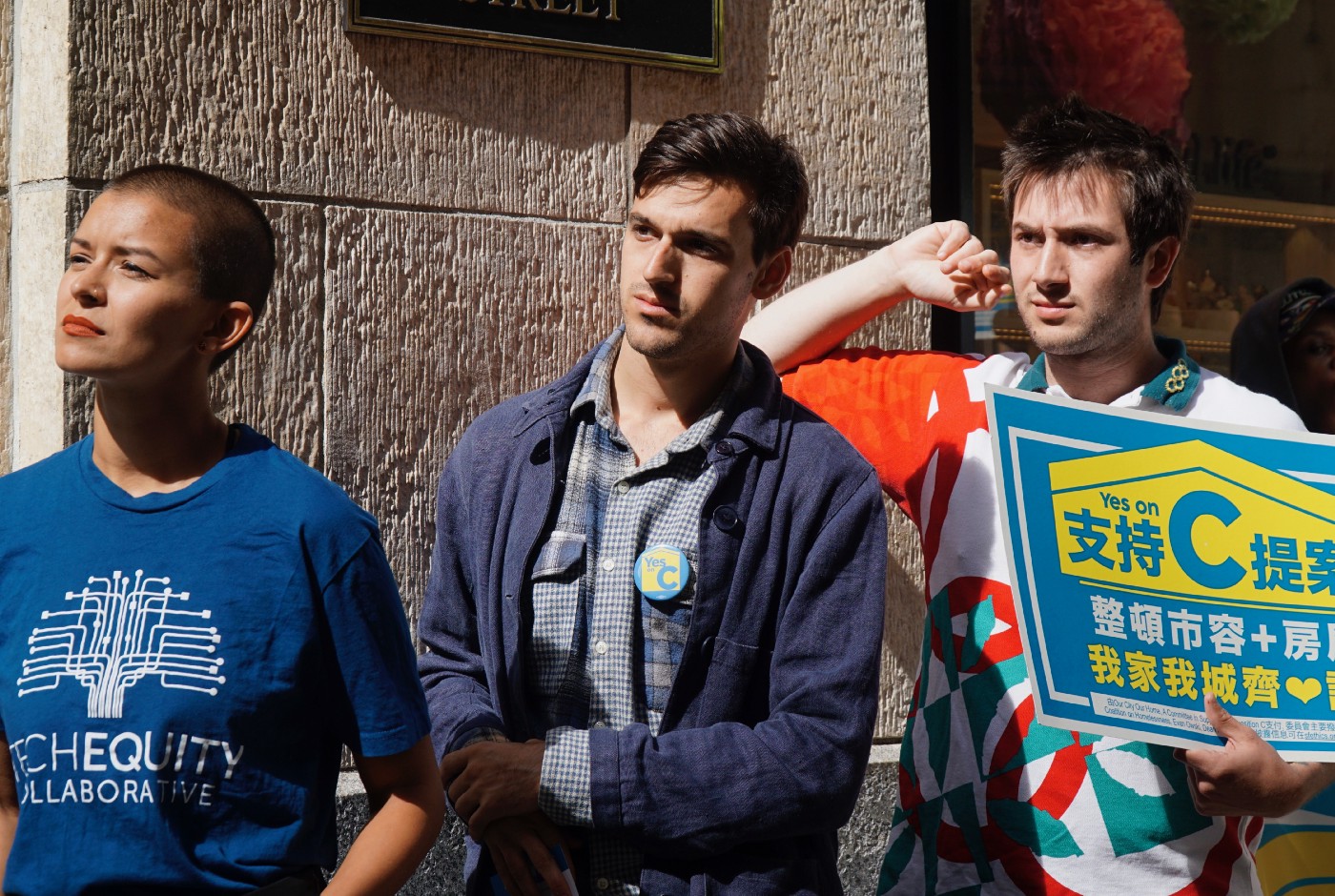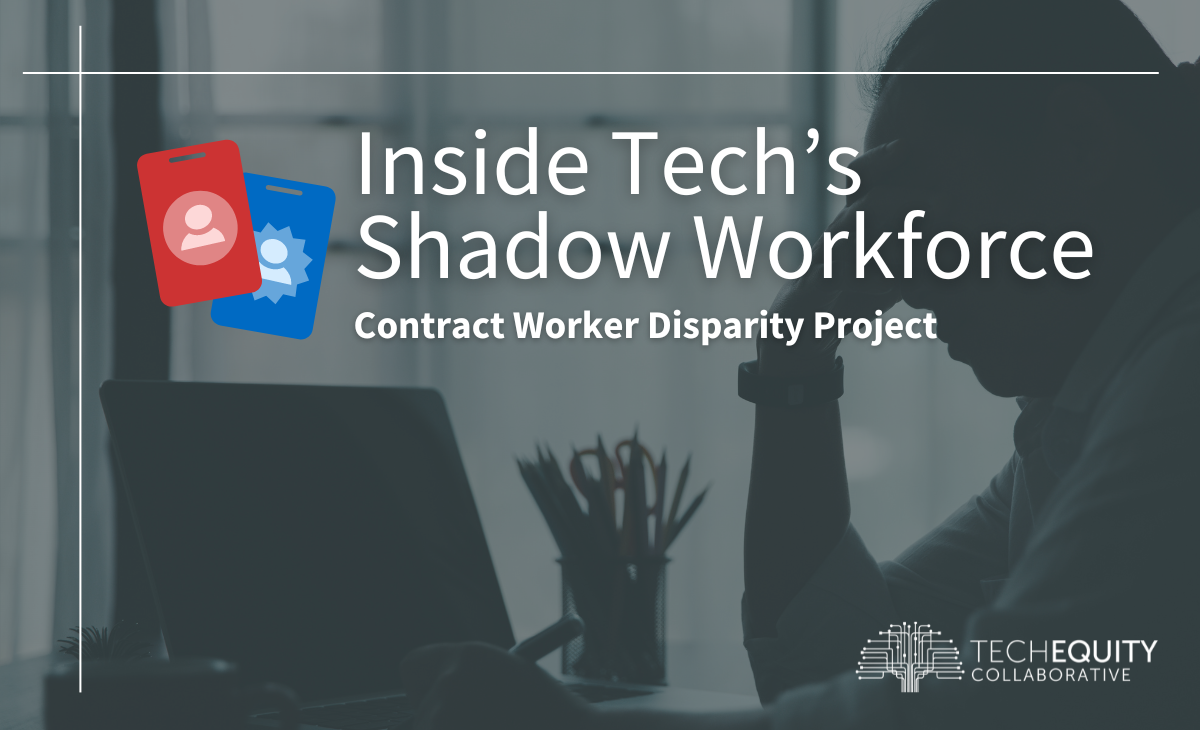The Business Case for an Equity Strategy Part 1: Engage in Policy Issues Important to the Community

By 2025, approximately 75% of our workforce will be comprised of Millennials. Deloitte’s 2019 study on Millennials and Generation Z highlight a growing trend of skepticism when it comes to businesses and the impact they have on society. Millennials and Gen Z workers often remain loyal to companies that align with their values; they are action-oriented and willing to change employers or end a consumer relationship because of company practices.
As a trend of value-based consumer and worker choice is growing across industries, this phenomenon is particularly acute in the tech sector. Increasingly, workers are advocating for more equitable practices from their employers. Just in the last few weeks workers at Kickstarter and Google have undertaken high-profile efforts to unionize. Workers are realizing the power they hold and pushing their companies to be more responsive.
It’s becoming apparent to tech investors and executives that companies that invest in equitable practices and build trusted relationships with the broader community will develop better brand resilience than those who don’t.
Ultimately, we think companies that hold social and economic equity as a core principle will be more successful. Beyond better brand awareness, companies will see higher employee retention rates, develop deeper trust with community stakeholders, and unlock access to a broader, more diverse pool of talent.
In 2018 TechEquity launched a corporate partnership program that aims to provide tech companies guidance and education on how to advance social and economic equity in the Bay Area. This blog series explores five key tactics tech companies have used to support employee and community engagement. We’ll highlight companies actively investing in equitable practices and take a deeper look at how to improve these approaches to drive increased business outcomes and meaningful impact in their communities.
Up first, how companies can listen to their communities to push for key policy change.
Part 1: Engage in Policy Issues Important to the Community
Policy change in housing and workforce & labor will allow the current tech-driven economic expansion to benefit the entire community, thereby reducing inequality in the Bay Area. Tech companies are in a unique position to help drive sustainable and equitable solutions.
Recently, tech companies have made corporate values statements on national issues. For example, Lyft committed by donating $1M over four years to the ACLU following the 2017 immigration ban. In the tech-centric Bay Area, we are only beginning to see large scale action on local issues.
At TechEquity, we recognize that the tech sector is not the cause of our housing crisis, but rather has exacerbated a problem that has been decades in the making. While tech didn’t create this problem, as a critical player in the economy, it has a responsibility to be part of the solution. When it comes to workforce & labor, the conditions in which tech has been growing have created enormous wealth and opportunity for a small minority, while creating instability, displacement, and inequality for many Bay Area residents.
The way forward starts by understanding the power that companies hold and the structural inequity built into our public policy from the federal, state, and local levels. The best solutions often come from those closest to the problem and here in the Bay Area, we’re surrounded by organizations that have been working to build equity for decades. These local actors are key to understanding pressure points within the community and where tech companies can leverage their resources to advocate for change.
We’re starting to see tech companies engage in these critical issues. Recently, Postmates* and Salesforce announced that they would let the city of San Francisco use the money collected under Prop C**, regardless of whether or not the measure is overturned in court.
The measure saw widespread support from the San Francisco community including tenant organizations, homelessness and housing groups, elected officials, and renowned activists. This is a stellar example of companies prioritizing the needs of their community by supporting lasting policy change.

In addition, to support Prop C, TechEquity is working with companies to help reform the corporate tax loophole embedded in California’s property tax law. Last week, Postmates hosted a panel in support of the Schools and Communities First measure, which would close this loophole and raise $10b for public education and social services, and is headed for the 2020 ballot. We heard from TechEquity Executive Director, Catherine Bracy, California Senator, Scott Wiener, and Founder and CEO of the tech company Pantheon*, Zack Rosen, on why the reform is critical for the long term health of our communities.
As rising costs, limited housing access, and the erosion of job quality continue to push people out of the Bay Area, it’s clear that companies, residents, and the government need to come together to drive solutions forward.
If you work for a tech company and you’re looking to deepen your company’s civic engagement in housing and/or workforce & labor, get in touch!
*TechEquity Corporate Partner
**Prop C hit the San Francisco ballot last year catalyzing a number of conversations. The Our City Our Home ballot measure, which was successfully passed by voters, imposes a gross receipts tax on corporate revenue over $50 million. As many as 400 companies in San Francisco would be subject to pay, generating an estimated $300 million annually for housing and other critical services for people experiencing homelessness in the city.
The measure is currently being challenged in the courts, meaning that the city can collect the tax but would have to refund it if the measure is overturned. Postmates and Salesforce are the first to step forward, signing a one-year agreement to let the city keep their share of tax — $14 million.





